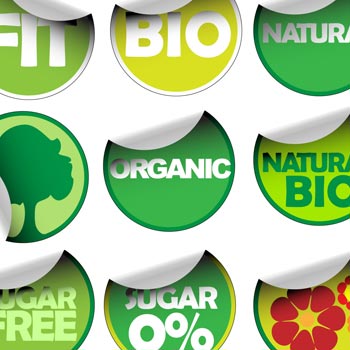Organics vs. Nonorganics

Do you spend a little more on organic or stick with the regular non-organic fruit? It all depends on the fruits you are buying. Here’s a great rule of thumb to remember — thin skin, go organic and thick skin, it’s ok to go non-organic.
Purchase your organic fruits in the produce, canned and frozen food aisles of your local grocery store. Expect to pay a little more for organic. That’s because you’re consuming the cost of enjoying organic fruits that are pesticide free and taste just as yummy as regular produce.
The only difference you may see is that organic fruit will tend to be smaller and not as perfect in appearance. They have not been waxed and grown with pesticides, which is actually a good thing.
Fruits with thin skin like grapes, apples, pears, and all berries should be purchased pesticide-free. After all, simple washing of fruit does not rid it of pesticides.
As prices for organic fruits are steadily lowering, many families are going organic when it comes to produce. Read your weekly fliers and purchase fresh, canned, and frozen fruits when on sale.
Many fruits freeze well. Wash them gently in cold water, strain extra water out, let dry on a towel, cut up or place in small single serve freezer bags. Cutting up and freezing your own fruit is a great way to have healthy snack options available for your family all the time and make you hard-earned dollar last longer.
Organic fruits should be left out on the table, provide healthy food options to your family or cut up your organic fruit and place in small baggies. Leave the baggies of organic fruit in the fridge for everyone to nibble on when they need a little pick-me-upper.
Your body is craving natural vitamins found in fruit. You should be giving your body between 5 and 9 servings of fruit a day. Organic fruit is cholesterol free, makes you feel better, is great brain food, and is filled with fiber.
Always opt for organic fresh fruit over canned or frozen fruit, when given the chance. Fresh fruit is loaded with lots of nutrients and vitamins. Frozen fruit is flash frozen and that seals in many nutrients and vitamins.
Frozen fruit is harvested at the peak of ripeness. Unlike fresh fruits that are picked before they ripen, allowing for ripening during transit to your local grocery store. Canned fruit has the least nutritional value due to extensive heating occurring during the canning process. There are benefits to canned fruit. Canned fruit lasts a longtime, often costs less, is quick from can to plate, and allows you to have perfectly tasty fruit regardless of the season.
Be sure to strive for daily fruit servings everyday and reduce your family’s exposure to toxic pesticides; buy organic fruits. Keeping fruit around will ensure that you are meeting your body’s nutritional requirements and eating healthier.

